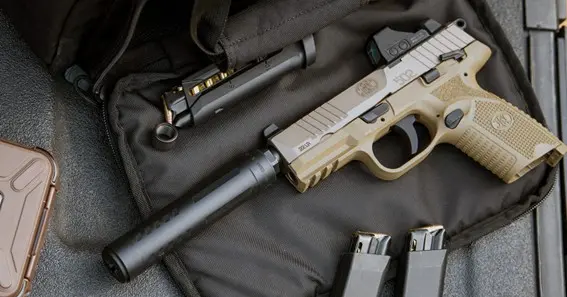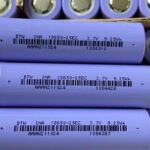Suppressors, commonly known as silencers, are devices attached to or part of the barrel of a firearm to reduce the noise and muzzle flash generated upon firing. FN Herstal (Fabrique Nationale), a renowned firearms manufacturer, offers a range of suppressors designed to enhance shooting experiences by minimizing sound and recoil. This article delves into FN suppressors, their benefits, compatibility, legal aspects, and maintenance.
Benefits of Using FN Suppressors
-
Noise Reduction: Suppressors significantly decrease the decibel level of gunfire, promoting hearing protection for shooters and reducing noise pollution in surrounding areas.
-
Recoil Mitigation: By dampening the recoil, suppressors enhance shooting accuracy and comfort, especially during rapid-fire sequences.
-
Muzzle Flash Reduction: Suppressors minimize muzzle flash, aiding in maintaining night vision and reducing shooter visibility in low-light conditions.
Compatibility with FN Firearms
FN Herstal designs suppressors compatible with various firearm models, ensuring optimal performance and integration. Notable FN suppressors include:
-
FN Ballista Suppressor: Tailored for the FN Ballista precision rifle, this suppressor reduces sound signature and recoil, enhancing long-range shooting accuracy.
-
FN SCAR-SD Suppressor: Designed for the FN SCAR series, particularly the SCAR 17S, this suppressor offers quick-attach mechanisms and effective sound suppression.
-
FN Five-seveN Suppressor: Compatible with the FN Five-seveN pistol, this suppressor reduces noise without significantly altering the firearm’s balance or handling.
Legal Considerations
In the United States, suppressors are regulated under the National Firearms Act (NFA). Prospective buyers must undergo a thorough application process, including:
-
ATF Form 4 Submission: Filing this form with the Bureau of Alcohol, Tobacco, Firearms, and Explosives (ATF) is mandatory for suppressor transfers.
-
Background Check: Applicants undergo an extensive background investigation to ensure eligibility.
-
Tax Stamp Payment: A $200 tax is imposed on each suppressor purchase, payable to the ATF.
It’s crucial to consult local laws, as regulations vary by state, with some jurisdictions imposing additional restrictions or outright bans on suppressor ownership.
Maintenance and Care
Proper maintenance ensures the longevity and effectiveness of suppressors:
-
Regular Cleaning: Carbon and lead deposits accumulate over time; routine cleaning prevents buildup that can impair performance.
-
Inspection: Regularly check for signs of wear, corrosion, or damage to internal baffles and external components.
-
Manufacturer Guidelines: Adhere to FN’s specific maintenance recommendations to preserve warranty coverage and ensure optimal functionality.
Conclusion
FN suppressors offer firearm enthusiasts enhanced shooting experiences by reducing noise, recoil, and muzzle flash. Understanding their benefits, ensuring compatibility with FN firearms, navigating legal requirements, and committing to proper maintenance are essential steps for responsible ownership. As always, prioritize safety and compliance with all applicable laws when considering suppressor acquisition and use.
FAQ
1. What is the primary purpose of an FN suppressor?
An FN suppressor aims to reduce the noise, recoil, and muzzle flash produced when firing an FN firearm, enhancing shooter comfort and accuracy.
2. Are suppressors legal to own in the United States?
Yes, suppressors are legal federally but are regulated under the National Firearms Act (NFA). However, legality varies by state; some states have additional restrictions or bans.
3. How do I purchase an FN suppressor?
Purchasing requires submitting ATF Form 4, passing a background check, and paying a $200 tax stamp. Consult local laws and work with a licensed dealer to ensure compliance.
4. Do suppressors affect firearm accuracy?
Suppressors can enhance accuracy by reducing recoil and muzzle rise, allowing shooters to maintain better control during firing.
5. How often should I clean my FN suppressor?
Cleaning frequency depends on usage. Regular inspection and cleaning after several hundred rounds are advisable to prevent buildup and maintain performance.










